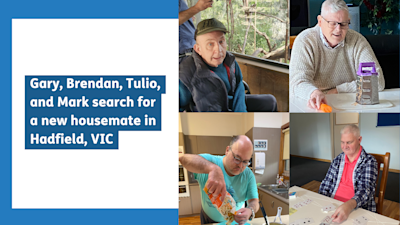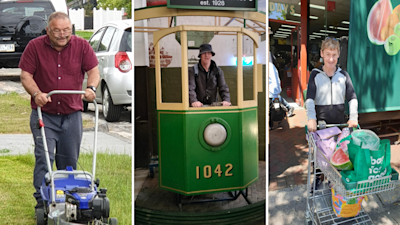We were thrilled to see Paul, one of the people we support featured in the second season of the ABC series EmployeableMe. This three part documentary series broadens the conversation around the challenges faced by people with disability as they seek to enter the workforce.
At Life Without Barriers, we are strong advocates of disability employment. At present, 9% of our employees (approx. 495 people) identify as having a disability, we offer a disability employment service called Joblife, and we regularly lead industry discussions around ways to increase the employment of people with disability. From our experience, we know that employing people with disability contributes to a thriving, diverse workplace culture and boosts morale. We encourage all employers to reframe how they view employing people with disability, and we’d like to bust some common myths about disability employment to get you started.
1. People with disability don’t want to work
People with disability want to contribute to their communities. Work is about so much more than a salary. For all people, those with disability and without, it is about social and community inclusion, a sense of professional accomplishment and earning an income that can help you to achieve other goals in your life.
2. People with disability can only do low-skilled work
This is a common misconception, however the opposite is actually the case. People with disability have a broad range of talents, skills and abilities, just like people without disability. A study by the Australian Bureau of Statistics in 2012 found that people with disabilities were employed as professionals, clerical and administrative workers, technicians and trade workers and small business owners.
In reality, people with disability usually have a clear understanding of their skills and abilities and are unlikely to apply for jobs they cannot do.
3. My business can’t afford to make the necessary modifications
If you find that the best person for the job is a person with disability, modifications shouldn’t stop you from hiring. Firstly, not all people with disabilities require modifications, but for those who do, the Australian Government offers the Employment Assistance Fund (EAF) which provides assistance up to $10,000 to make a workplace accessible for a person with disability.
But, don’t assume that a person with a disability will always require expensive, specialised equipment. Modifications can often be as simple as a raised desk, modified work hours or extra training.
4. People with disability are more likely to take sick days, quit or use workers compensation
Research overseas has shown that people with disability take fewer days off, take less sick leave and have a much lower turnover rate than other employees. Additionally, research by Deakin University (2002) showed that workers with disability are no more likely to be injured at work than other employees.
“Impairments are a fact of life. They arrive at birth through life’s genetic lottery, they take hold of us in a car ride or a swim in the surf that goes devastatingly wrong, they slowly permeate us as we grow old. In a sense, impairments are not what disable people. What disables people is society’s attitudes towards the impairment”
— The Hon Bill Shorten MP in his speech ‘A right to an ordinary life’ (1 April 2009)
5. People with disability won’t fit into my workplace
In Australia today, about 20% of the population lives with a disability. As this is one in five people, it is quite likely that your existing employees already have a friend or family member with a disability. In most cases your staff will be used to interacting with people with disability, but for those who are not, acceptance usually comes with observing that the employee with disability is competent in their work, just like the rest of the team.
We encourage you to reframe how you view disability when recruiting. The Australian Government offers support and funding to businesses who are looking to hire employees with disability.


